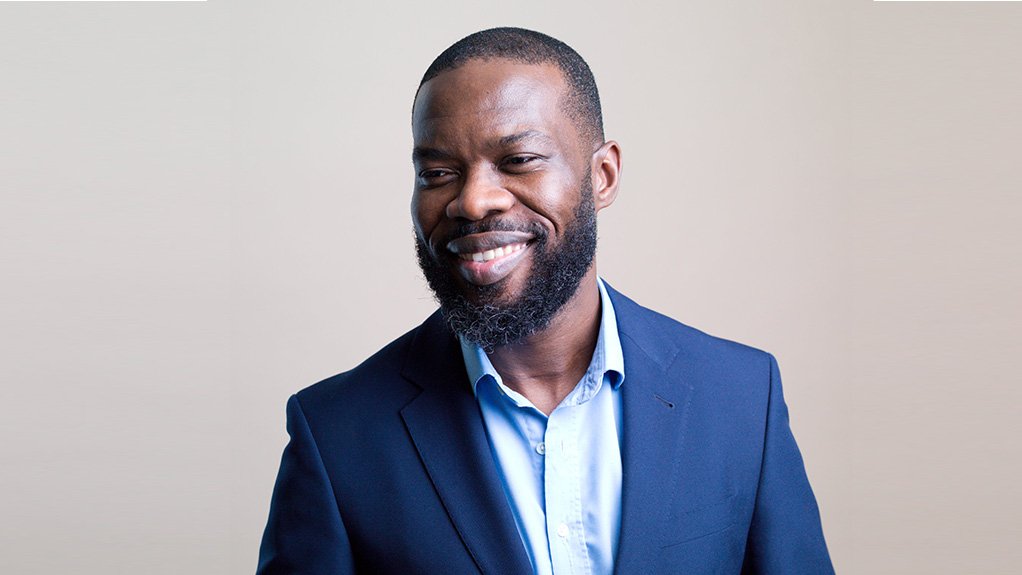New trends boost need for project skills development



GEORGE ASAMANI We want to engage with traditional project managers and change-makers are brought in to implement some kind of change in an organisation
SUPPORTING PROJECT INDUSTRIES PMI is also supporting other organisations in more traditional sectors that focus on traditional, agile, or waterfall, project management
Recent trends, such as the impact of digital disruption, climate change and shifting demographics, have increased the need for reskilling and upskilling local project management talent, says non-profit organisation Project Management Institute (PMI) sub-Saharan Africa MD George Asamani.
“It is change-makers, equipped with necessary project management-related skills, who can help companies and organisations to respond to and navigate these trends and the changes that come from them.”
The first trend is the increased rate of digitalisation and digital disruption, which has been accelerated by the Covid-19 pandemic forcing people to work remotely and online.
Asamani emphasises the advancement of technology by discussing Moore’s Law – referring to Intel Corporation founder Gordon Moore’s perception that the number of transistors on a microchip doubles every two years, and that the speed and capabilities of computers will increase exponentially over time while costs decrease.
Previously, it took significantly longer to move from one technology to another, but the rate of advancement has increased significantly with advancements in computer technologies.
“Individuals and companies need to keep up with technology. We call this digital transformation – when a company uses technology to run projects internally and this is often what customers want. The consumer drives these digital trends, but it could also be because of regulations.”
Asamani adds that the pandemic also accelerated the growth of “micro-credentials”, or mini qualifications, that demonstrate skills, knowledge and/or experience in a particular competency.
“Everything moved online, including education and skills development. People took the opportunity to focus on acquiring and improving acute skills needed to remain competitive in the job market.”
People started to look for short courses to help them acquire such credentials that serve a specific skill.
Such skills include those pertaining to project management, in addition to technical product management, as well as soft skills, such as critical thinking and complex problem solving, he explains.
Another trend, Asamani emphasises, is the commitment made to address climate change at the Conference of the Parties, or COP26, held last November in Glasgow, Scotland, which demands project management-related skills.
Global changes – such as the just energy transition – enforced by climate change, also need to be addressed.
Further, Asamani adds that, in terms of demographics, Africa features a proportionately large youth population, compared to other continents, which have ageing populations.
“There’s potential for South Africa, as well as the rest of Africa, to capitalise on this trend, which we’ve yet to take advantage of, by upskilling our youth.”
Skills-building Partnerships
To equip South African youth with the necessary “game-changer skills” related to project management, PMI is partnering with as many universities and youth- and skills-related organisations as it can.
Asamani says PMI’s short-term objective is engagement.
“Following the formation of the PMI South Africa Chapter 40 years ago, we’ve gained momentum in the country. We want to engage with traditional project managers and change-makers, whose titles aren’t that of project manager, but who have similar skills and are brought in to implement some kind of change in an organisation”.
He adds that PMI wants to “form a community” and make sure that local individuals, businesses and stakeholders are aware of what is available to them and can benefit from it.
Asamani adds that PMI is also partnering with local universities to provide free skills training.
For example, PMI is conducting Citizen Development, an initiative that involves teaching people how to build digital and mobile applications without having to be an expert and/or a professional software developer.
PMI is working with private companies, such as banks, to assist in their transitioning to agile-born financial technologies and digital banking.
The company is also supporting other organisations in more traditional sectors that focus on traditional, agile, or so-called waterfall, project management.
PMI’s medium- to long-term goal is impact, he emphasises.
Rather than PMI providing training for companies or organisations, PMI rather enables companies, and individuals within those companies, to do this themselves.
“Because of who we are and what we have in our toolkit, we’re able to support these organisations, speak to senior leadership and have webinars with staff, and provide an open door with access to PMI Global. What we do is understand the organisation and provide guidance on what they can do to build the in-house training that they require,” he concludes.
Article Enquiry
Email Article
Save Article
Feedback
To advertise email advertising@creamermedia.co.za or click here
Press Office
Announcements
What's On
Subscribe to improve your user experience...
Option 1 (equivalent of R125 a month):
Receive a weekly copy of Creamer Media's Engineering News & Mining Weekly magazine
(print copy for those in South Africa and e-magazine for those outside of South Africa)
Receive daily email newsletters
Access to full search results
Access archive of magazine back copies
Access to Projects in Progress
Access to ONE Research Report of your choice in PDF format
Option 2 (equivalent of R375 a month):
All benefits from Option 1
PLUS
Access to Creamer Media's Research Channel Africa for ALL Research Reports, in PDF format, on various industrial and mining sectors
including Electricity; Water; Energy Transition; Hydrogen; Roads, Rail and Ports; Coal; Gold; Platinum; Battery Metals; etc.
Already a subscriber?
Forgotten your password?
Receive weekly copy of Creamer Media's Engineering News & Mining Weekly magazine (print copy for those in South Africa and e-magazine for those outside of South Africa)
➕
Recieve daily email newsletters
➕
Access to full search results
➕
Access archive of magazine back copies
➕
Access to Projects in Progress
➕
Access to ONE Research Report of your choice in PDF format
RESEARCH CHANNEL AFRICA
R4500 (equivalent of R375 a month)
SUBSCRIBEAll benefits from Option 1
➕
Access to Creamer Media's Research Channel Africa for ALL Research Reports on various industrial and mining sectors, in PDF format, including on:
Electricity
➕
Water
➕
Energy Transition
➕
Hydrogen
➕
Roads, Rail and Ports
➕
Coal
➕
Gold
➕
Platinum
➕
Battery Metals
➕
etc.
Receive all benefits from Option 1 or Option 2 delivered to numerous people at your company
➕
Multiple User names and Passwords for simultaneous log-ins
➕
Intranet integration access to all in your organisation




















